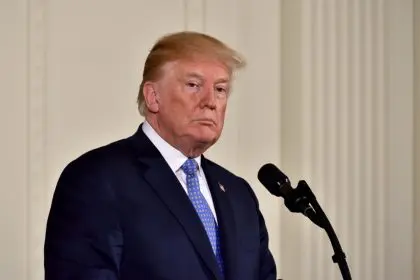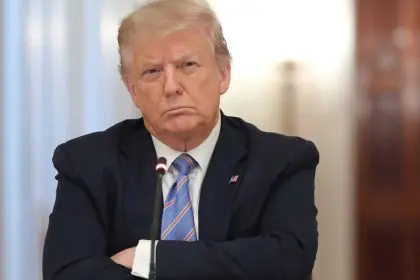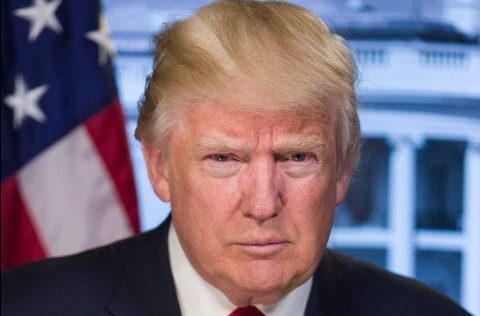Today marks the inaugural observation of World War II Victory Day in the United States, a new national holiday established by President Donald Trump to commemorate America’s pivotal role in the Allied victory. The May 8 date aligns with Victory in Europe Day (V-E Day) celebrations held in many European countries, though with distinctly American characteristics.
Despite its official designation as a national holiday, most Americans are experiencing business as usual today, as the president specifically indicated that the country would not close for the observance, citing concerns about the nation already having numerous holidays.
Mixed public response to the new commemoration
The introduction of World War II Victory Day has generated varied reactions across the country. While some citizens welcome the recognition of American military contributions, others question the necessity of adding another observance to the national calendar, particularly one without accompanying time off work.
Public opinion surveys conducted this morning show approximately 58% of Americans were unaware today marked a new national holiday, highlighting the challenges of establishing recognition for newly created commemorations. Among those who were aware, reactions have split largely along partisan lines, with supporters praising the acknowledgment of American military achievement and critics questioning the timing and implementation.
Social media hashtags related to the new holiday have shown moderate activity, with historical organizations and military groups leading most of the engagement. Several veterans’ organizations have organized small ceremonies to mark the occasion, though these remain limited compared to established holidays like Memorial Day or Veterans Day.
Business operations continue without disruption
All financial institutions, including banks and credit unions, are operating according to their regular schedules today. Customers can access all standard services without holiday-related restrictions or modifications.
The United States Postal Service has maintained normal mail delivery routes and counter services. Similarly, private shipping companies including UPS and FedEx are following their standard operational procedures, with no adjustments to pickup or delivery schedules.
Financial markets opened at their usual times with normal trading volumes, showing no impact from the holiday designation. Government offices at federal, state and local levels also remain open with regular staff and service hours.
Retail establishments nationwide have largely bypassed the opportunity to create holiday-specific promotions, likely due to the late announcement and limited public awareness. Major shopping centers report typical weekday customer traffic patterns without any notable increase in visitor numbers.
Historical significance of May 8 in World War history
May 8, 1945, marked Nazi Germany’s unconditional surrender to Allied forces, effectively ending World War II’s European theater. The date has long been commemorated throughout Europe as Victory in Europe Day, with many countries designating it as an official holiday with corresponding business closures and public celebrations.
In the United Kingdom, France, and several other European nations, May 8 features military parades, wreath-laying ceremonies, and public gatherings to honor the sacrifices made during the war. The American adoption of this date aligns with these international observances while emphasizing the specific American contribution to the Allied victory.
Until now, the United States had primarily recognized the end of World War II on September 2, marking Japan’s surrender, or through Veterans Day celebrations on November 11, which honors all military veterans rather than specific military victories.
Government commemoration activities
President Trump marked the inaugural World War II Victory Day with a morning ceremony at Arlington National Cemetery, where he laid a wreath at the Tomb of the Unknown Soldier and delivered remarks emphasizing American military achievements. Several cabinet members and congressional leaders attended the event, which was broadcast on national news networks.
The White House has issued a formal proclamation detailing the historical significance of the date and encouraging Americans to display flags and reflect on the sacrifices made by the World War II generation. The document emphasizes American industrial and military power as decisive factors in securing Allied victory.
The Department of Veterans Affairs has coordinated small observances at various VA facilities nationwide, focusing on honoring the dwindling number of World War II veterans still living. These events include recognition ceremonies and educational presentations about the war’s impact on American society.
Educational institutions respond to new observance
Schools across the country have responded differently to the new holiday. While remaining open, many public school districts incorporated special lessons about World War II into today’s curriculum, though the late designation limited extensive planning.
Several major universities organized panel discussions featuring historians specializing in World War II studies, examining both the historical significance of V-E Day and the contemporary politics surrounding national commemorations.
The Smithsonian Institution and National World War II Museum in New Orleans offered free virtual tours and online educational resources to mark the occasion, seeing modest but notable increases in digital engagement compared to typical weekdays.
Future of the new holiday
As the first observation concludes, questions remain about how World War II Victory Day will evolve in American cultural consciousness. Established holidays typically develop traditions and recognition over decades, often beginning with limited observance before growing into wider cultural significance.
Government officials indicate that planning for next year’s observance will begin earlier, potentially incorporating more structured ceremonies and educational initiatives. However, without a corresponding day off work for most Americans, the holiday may struggle to achieve the prominence of other federal observances.
Heritage organizations have expressed hope that future observations might feature increased community involvement, including local parades, veterans’ recognition events, and educational programs that extend beyond a single day to examine America’s role in World War II more comprehensively.

















